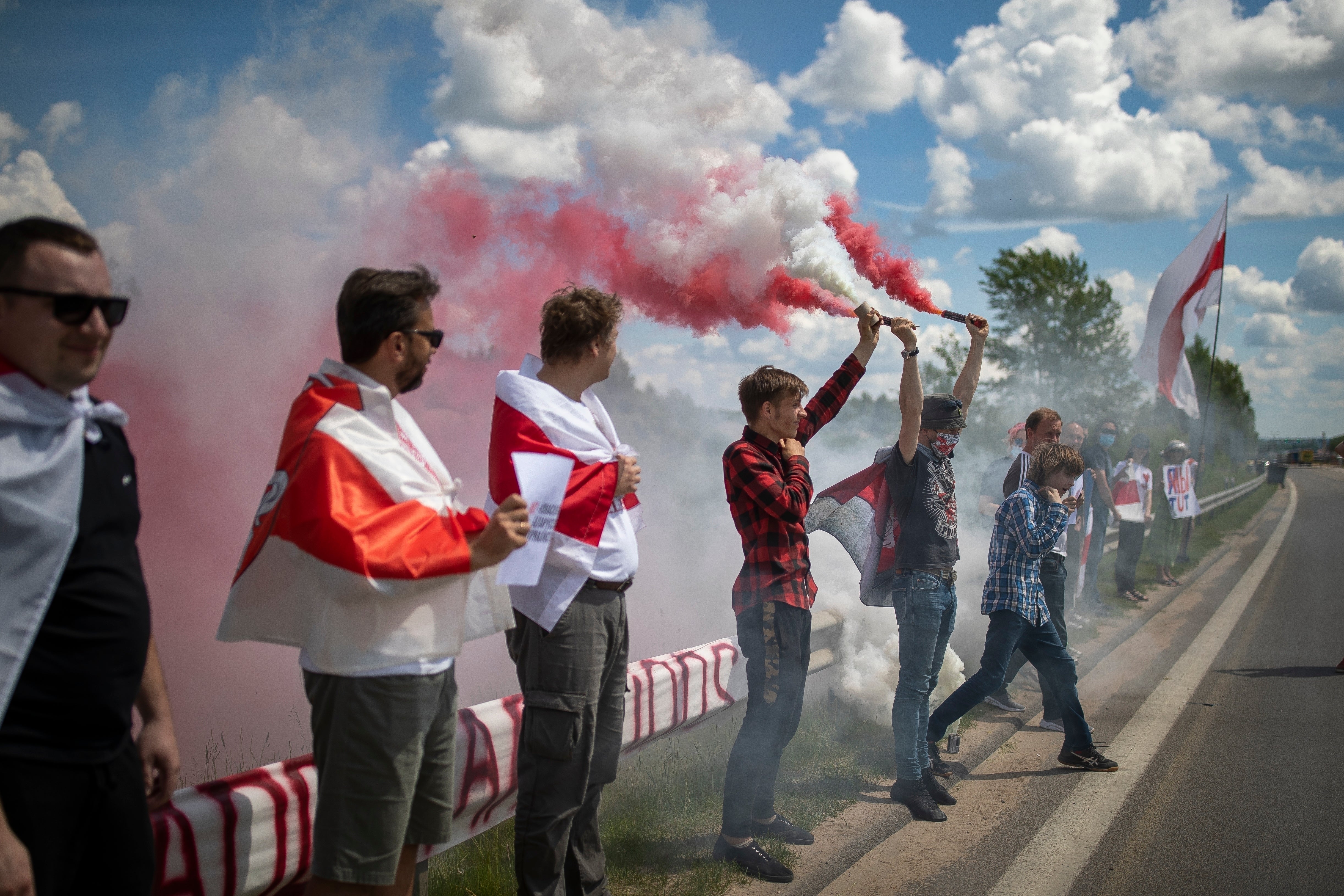Lithuania to temporarily close two checkpoints with Belarus amid tensions on border
Lithuania has decided to temporarily close two of its six checkpoints with Belarus this week amid growing tensions with its eastern neighbor, an ally of Russia

Lithuania on Wednesday decided to temporarily close two of its six checkpoints with Belarus later this week amid growing tensions with its eastern neighbor, an ally of Russia.
The Lithuanian government has said that the crossings at Tverecius and Sumskas will be closed, and traffic will be diverted to the Medininkai border checkpoint, which is the largest of Lithuania’s six checkpoints.
The decision came as Lithuanians grow increasingly worried about the presence of Russia-linked Wagner group mercenaries in Belarus.
“The main goal is to temporarily suspend operations at these two points from Aug. 18,” Deputy Minister of Transport Agnė Vaiciukeviciūte said, adding that the move offered the possibility of directing officers performing border control checks to other points.
Lithuania, a Baltic nation that declared its independence from the Soviet Union 33 years ago, is a democracy that belongs to NATO and the European Union. It has been a strong backer of Ukraine and a place of refuge in recent years for many who have fled an authoritarian crackdown in neighboring Belarus and increased repression in Russia.
Rustamas Liubajevas, commander of the Lithuanian State Border Guard Service, said that there could be up to 4,500 of Wagner fighters in Belarus, with some of them stationed close to the Lithuanian and Polish borders.
In neighboring Latvia, the State Border Guard Service said Tuesday it was mobilizing additional border guards to strengthen the protection of the external state border, the LETA news agency said.
This decision was taken due to the sharp increase in the hybrid threat at the Latvian-Belarusian border over the past days, when 96 attempts by people to cross the state border were detected, as well as the increased involvement of the Belarusian authorities in organizing the flow of illegal immigrants.
Latvian authorities consider attempts by Belarusian leader Alexander Lukashenko’s regime to push migrants across borders to be methods of hybrid warfare targeting these countries.
LETA said that the annual leave of State Border Guard officers had been suspended. The State Border Guard has also requested additional support from the National Armed Forces and the State Police.
Lithuania, too, has seen migrants coming from Belarus. A total of 11,211 people have been denied entry to Lithuania from Belarus since January 2022, according to the State Border Service. And some 1,543 have not been allowed to enter this year so far.
Countries bordering Belarus have increased border security since thousands of Wagner fighters arrived in Russian-allied Belarus under a deal that ended their armed rebellion in late June and allowed them and their leader, Yevgeny Prigozhin, to avoid criminal charges.
In recent days, Poland, which sits south of Lithuania, has been deploying thousands of troops to its border with Belarus, calling it a deterrent move as tensions between the two neighbors ratchet up.
___ Jan M. Olsen in Copenhagen, Denmark, contributed to this report.
Bookmark popover
Removed from bookmarks